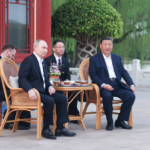THE PMO-driven proposals to tinker with the rules and sub-rules governing the Indian bureaucracy have stirred the hornet’s nest. It has whipped up a lively debate among working and retired civil servants, experts and the public. Most issues relate to the motives of the government, impact on the bureaucracy and the influence of the outsiders, 10 of whom may join as Joint Secretaries in key economic ministries. The inevitable questions are: Why now? Why only 10? In the central administration with several dozens of ministries, can less than a dozen people make any difference?
The pro-lateral induction voices argue that in the 21st century, India needs domain experts, who can transform governance and make it efficient, deliverable and transparent. Moreover, in the post-reforms era, one needs to invite outsiders, who wish to contribute to governance and offer their services.
However, almost 200 years of modern bureaucratic history in India teaches us two crucial lessons. One, the aim of the civil services was to ensure public good and public welfare. The pursuit of socialistic goals, not profits, governed the decisions and actions of the bureaucrats. They were judged by efficient public expenditure to deliver the best results to the hundreds of millions of poor.
For seven decades in post-Independent India, the civil servants were never allowed to gain domain expertise. They were shuttled across geographies, across ministries and departments on a regular basis to achieve the stated objectives. If expertise is the key, lateral induction should be simultaneously combined with critical changes in the working of the bureaucrats and allow them to become experts over a 10-15 year period. The two steps have to move in a synchronised manner. Critical ministries like agriculture, oil and gas, telecom, finance and defence needs dozens of experts and not just one JS, who comes from the outside.
Given their dismal minority, a clash between the insiders and outsiders is inevitable. The former may decide to non-cooperate with the latter. Lateral induction is like the introducing of a new organ to replace an existing organ in the body-politic of bureaucracy. Sometimes, the system can assimilate the newcomer; but most times the body can reject it. At the same time, for the new JS to understand the intricacies of the ‘green paper’ process, which is crucial to the drafting of policies and initiated by a JS, can take a year or so, or a third of their three-year tenure.
Although it may not be evident, the outsiders, like the insiders, will be monitored by the fearless system of 4Cs and one R – CAG, CBI, CVC, Courts and the Right to Information Act. In an era, when Secretaries and Ministers have been put behind bars, will the so-called domain experts be ready for such scrutiny and punishment, even years after they have quit their posts? To look at it from another perspective, can the governments that have allowed Vijay Mallya or Nirav Modi to escape from the country assure the citizens that they will not let the guilty outsiders get away with illegalities?
More importantly, lateral induction can open up the Pandora’s Box in the states. If outsiders can join the Centre, they can surely enter the state administrations. The Chief Ministers will get the opportunities to inculcate their favourites into the system and, possibly, corrupt it further. Hence, the implications of such decisions need to be thought through completely. If started, they can gain a momentum of its own, further disrupting governance.
Finally, we need to ask one overriding question: Will lateral induction help improve the lives of the poor?
ANIL TYAGI
editor@gfilesindia.com
Editor, gfiles





























































